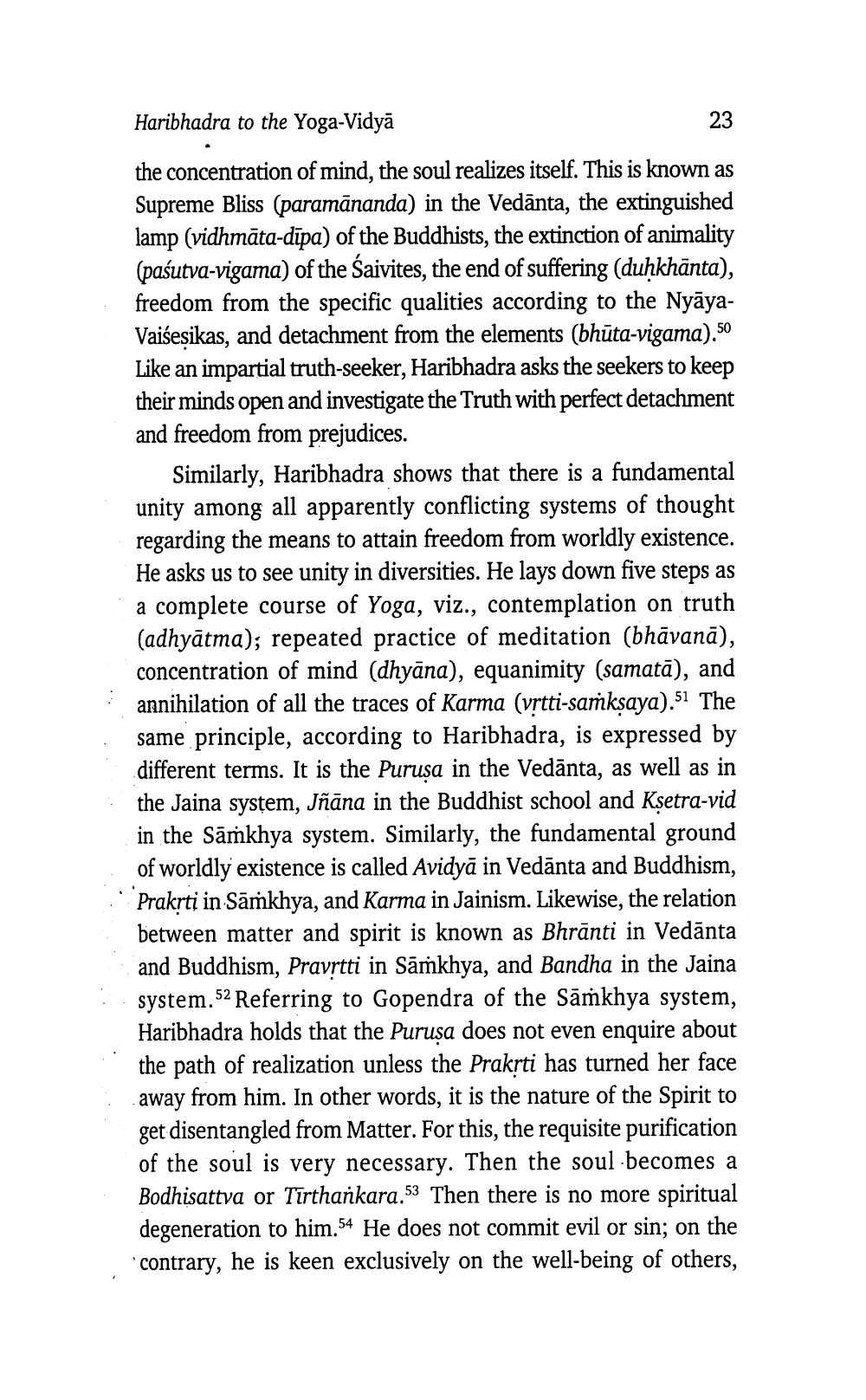________________
Haribhadra to the Yoga-Vidyā
23 the concentration of mind, the soul realizes itself. This is known as Supreme Bliss (paramānanda) in the Vedānta, the extinguished lamp (vidhmāta-dīpa) of the Buddhists, the extinction of animality (paśutva-vigama) of the Saivites, the end of suffering (duḥkhānta), freedom from the specific qualities according to the NyāyaVaiseșikas, and detachment from the elements (bhūta-vigama).50 Like an impartial truth-seeker, Haribhadra asks the seekers to keep their minds open and investigate the Truth with perfect detachment and freedom from prejudices.
Similarly, Haribhadra shows that there is a fundamental unity among all apparently conflicting systems of thought regarding the means to attain freedom from worldly existence. He asks us to see unity in diversities. He lays down five steps as a complete course of Yoga, viz., contemplation on truth (adhyātma); repeated practice of meditation (bhāvanā), concentration of mind (dhyāna), equanimity (samatā), and annihilation of all the traces of Karma (vrtti-saṁksaya).51 The same principle, according to Haribhadra, is expressed by different terms. It is the Purusa in the Vedānta, as well as in the Jaina system, Jñāna in the Buddhist school and Kșetra-vid in the Sāṁkhya system. Similarly, the fundamental ground of worldly existence is called Avidyā in Vedānta and Buddhism, Prakrti in Sāṁkhya, and Karma in Jainism. Likewise, the relation between matter and spirit is known as Bhrānti in Vedānta and Buddhism, Pravrtti in Sāṁkhya, and Bandha in the Jaina system.52 Referring to Gopendra of the Sāṁkhya system, Haribhadra holds that the Puruşa does not even enquire about the path of realization unless the Prakrti has turned her face away from him. In other words, it is the nature of the Spirit to get disentangled from Matter. For this, the requisite purification of the soul is very necessary. Then the soul becomes a Bodhisattva or Tirthankara.53 Then there is no more spiritual degeneration to him.54 He does not commit evil or sin; on the contrary, he is keen exclusively on the well-being of others,




